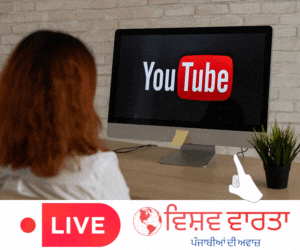Russia’s missile attack ‘was real hell’, Kiev children’s hospital head tells UNSC
United Nations, July 10 (IANS/WISHAVWARTA) “It was a real hell,” the director of the children’s hospital in Kiev, Volodymyr Zhovnir, told the Security Council, describing Russia’s missile attack on the institution. “We felt a powerful explosion, the ground shook, and walls trembled,” he said at Tuesday’s meeting on the barrage of missiles that struck two hospitals in the capital and other targets around Ukraine. “Children and adults screamed and cried from fear, and wounds, from pain,” he added. “We heard people crying out for help from beneath the rubble,” he said. At that time, 600 children were undergoing treatment at the hospital, some of them on drips, and three heart surgeries were in progress, Zhovnir added. About 300 people were injured in the attack on the Okhmatdyt National Children’s Specialised Hospital, and a doctor was among two people killed, he said. Russia’s Permanent Representative Vasily Nebenzia, who is the President of the Council for this month, listened stone-faced to several representatives condemning the hospital attack. Accusing Russia of war crimes, Britain’s Permanent Representative Barbara Woodward said, “Its conduct is a disgrace to the Security Council, especially to the President’s seat.” Nebenzia denied that Russia had hit the hospital and asserted that it was a Ukrainian missile that landed on the hospital. “If this was a Russian strike, there would have been nothing left of the building, and all the children would have been killed and not wounded,” he said bizarrely. A Ukrainian missile that tried to intercept a Russian warhead targeting a factory had caused the damage at the hospital, he added. Western countries were engaged in “verbal gymnastics” to protect Ukraine as the NATO summit was starting in Washington, he said. Ukraine’s Permanent Representative to the United Nations, Sergiy Kyslytsya, countered, showing pictures that he said were of the missile fragments that had Russian markings found at the hospital, and of the route the missile followed. “The footage (recording the attack) captured the moment the KH 101 missile dived towards the hospital building,” he said. Acting United Nations Under-Secretary-General for Humanitarian Affairs, Joyce Msuya, said, “Intentionally directing attacks against a protected hospital is a war crime, and perpetrators must be held to account.” “Yesterday’s attacks and their impacts are a reminder of the deplorable human toll of this war, particularly on the most vulnerable members of society—tragedies we will see again and again as long as this conflict continues and the rules of war are defied,” she added. Guyana’s Permanent Representative to the United Nations, Carolyn Rodrigues-Birkett, asked, “What military or other advantage is there to gain from the unconscionable attack against a children’s hospital?” The lives of innocent children “cannot continue to be sacrificed at the altar of political brinkmanship,” she said. South Korea’s Permanent Representative to the United Nations, Joonkook Hwang, called the attack a “new low” and said, “An attack against the most vulnerable among us betrays a basic lack of humanity.” The US Permanent Representative to the United Nations, Linda Thomas-Greenfield, said that “yesterday’s attack makes abundantly clear (Russia’s President Vladimir Putin) is not interested in peace” even though he was pushing Kiev “to accept an unjust peace while facing the barrel of a gun”. China’s Deputy Permanent Representative to United Nations, Geng Shuang, short of outrightly condemning Russia, expressed concern at the “large number of casualties among innocent civilians” and over the “fighting (that) has intensified and vicious attacks occurred from time to time, which resulted in serious casualties”. “There is no winner in military confrontation,” he said. Meanwhile in Moscow, Prime Minister Narendra Modi, on a visit to Russia, offered his own criticism of the attack without naming his hosts, “When innocent children are killed, when we see innocent children dying, then the heart pains. And that pain is very horrible.”






















